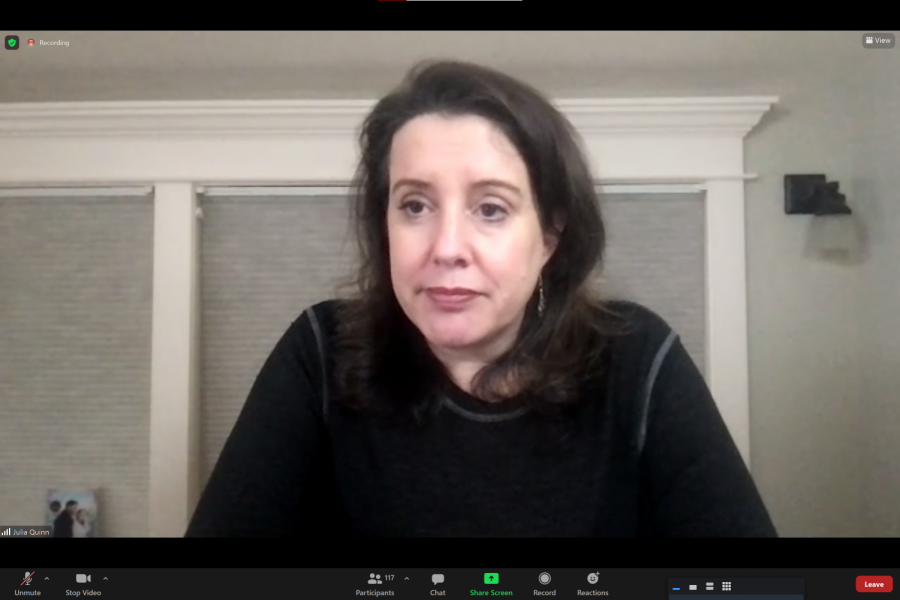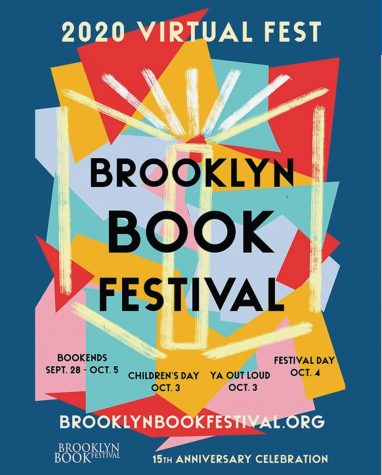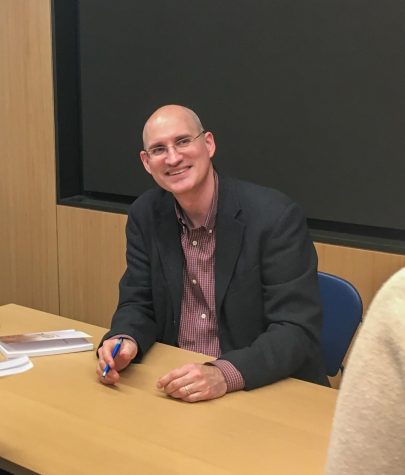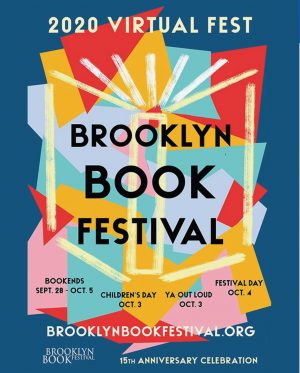Lessons in Love: ‘Bridgerton’ Author Makes Her Fordham Debut
Julia Quinn gives advice to students on writing, the romance genre and adaptation
ZOOM
Bridgerton author Julia Quinn sits down with Fordham students over Zoom to discuss all things “Bridgerton” and the historical romance genre.
April 12, 2021
The TV series “Bridgerton,” released on Netflix in December, was a massive success for the streaming platform. It is the most-watched Netflix original to date. Julia Quinn, the author of the book series the show was based on, participated in a Zoom Q&A with over 100 Fordham students on March 24 in an event organized by Mary Bly, a professor in the English department.
Quinn is a historical romance author who published the first book in the “Bridgerton” series, “The Duke and I,” in 2000. The novels are set in the Regency era, the period from 1811 to 1820, a decision Quinn notes was inspired by other historical romances she was reading at the time. Despite knowing very little about the period, she pulled a lot of her knowledge from these other books. “When I started, there was no internet. Nowadays, it’s so much easier to do research.” She tries to get a general understanding of the periods in which she sets her novels.
“My books are set in history, but real historical events don’t affect what’s going on in my book. They’re more of a background, so I look things up as needed.”
“I love that ‘Bridgerton’ the television show has managed to create something where more people can see themselves in the story.” Julia Quinn, romance author
Like most book-to-TV adaptations, there are some differences between the book and the show. One major change was that the characters in the show were more diverse than in the books. Addressing the importance of diversity, Quinn explained that she was pleased with the show’s inclusive choices, not just on-screen but also in the writers’ room. “One of the main things about a romance novel is the way it makes the reader feel and the happiness you get at the end,” Quinn said. “I love that ‘Bridgerton’ the television show has managed to create something where more people can see themselves in the story.” Through social media, she has been able to see the joy it brings people to see themselves represented on-screen and is grateful that the show creators made diverse casting choices.
Very early on in the show creation process, Quinn decided to give up complete creative control to Shondaland, the company producing the show for Netflix. She recognized that it was a once-in-a-lifetime opportunity for a historical romance author and also trusted the production company and its work. “I wasn’t going to tell Shonda Rhimes how to make television,” Quinn said.
Many students were curious about the impact that the show’s success will have on the way the romance genre is perceived and asked Quinn for her views. While she thinks it is a little too soon to predict, Quinn said that she loved the show and felt that it perfectly captured the journey people go on when reading historical romance. She hopes that people who loved the show will be inspired to explore more books in the genre.
Regarding misconceptions about the genre, Quinn cited a quote from Nancy Pearl, an author and librarian, which states, “Literary fiction is always judged by the best example of it, and romance is always judged by the worst.”
Quinn said this is true for a lot of genre fiction, particularly those primarily targeted toward women. “People love finding bad romance novels, but there are bad novels in every genre.” She does not feel the need to defend the genre or convince people to like it because some people are just not willing to give it a chance.
Emma Paolini, Fordham College at Rose Hill ’21, was excited for the English department to host an event like this. “I think it’s a testament to the impact of ‘Bridgerton’ that the show’s success was able to bring the conversation about the romance genre to the forefront here at Fordham,” she said. “Often, genre fiction like romance is left out of academic study despite its cultural impact, and I hope that the success of this event will show people that this is a genre worth talking about.”
The success of this show tells us what romance readers have been saying for years: These stories are valuable and deserve to be told just as much as any others. In January, Netflix announced that the show had been renewed for a second season, and while Quinn remained tight-lipped about it, she believes that the second book is more suited to adaptation than the first and is excited to see what Shondaland does with it.
And with a diverse team behind it, and a story better adapted for a modern audience, there’s no telling how exciting upcoming seasons of the show will be.



















